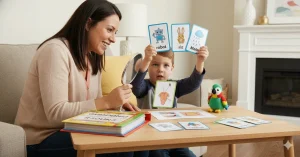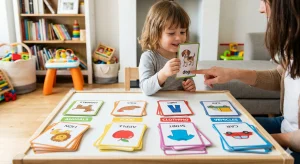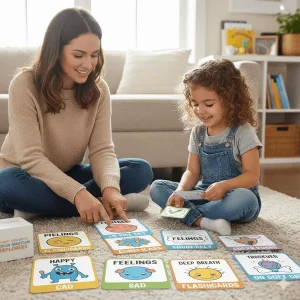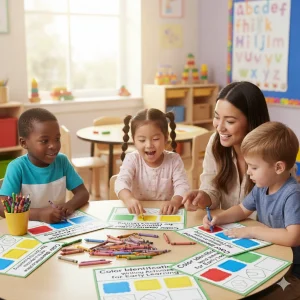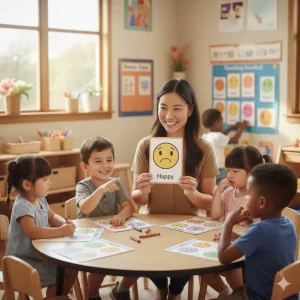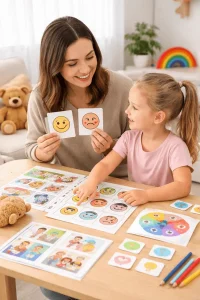Do Challenges Really Strengthen Your Bond as a Couple?
By Prapoorna M
Last Updated: October 8, 2024
Every couple faces challenges at some point in their relationship. Whether it’s financial stress, long-distance, or disagreements with family, these tough times are inevitable. But do these challenges really strengthen your bond as a couple?
In this article, we’ll explore how navigating difficulties together can impact your relationship. We’ll delve into practical advice on how to grow closer despite hardships, and offer insights on maintaining a strong, healthy connection. By understanding and applying these strategies, you and your partner can not only survive tough times but thrive through them.
Book Your Marriage Counselling Now
Understanding Relationship Challenges
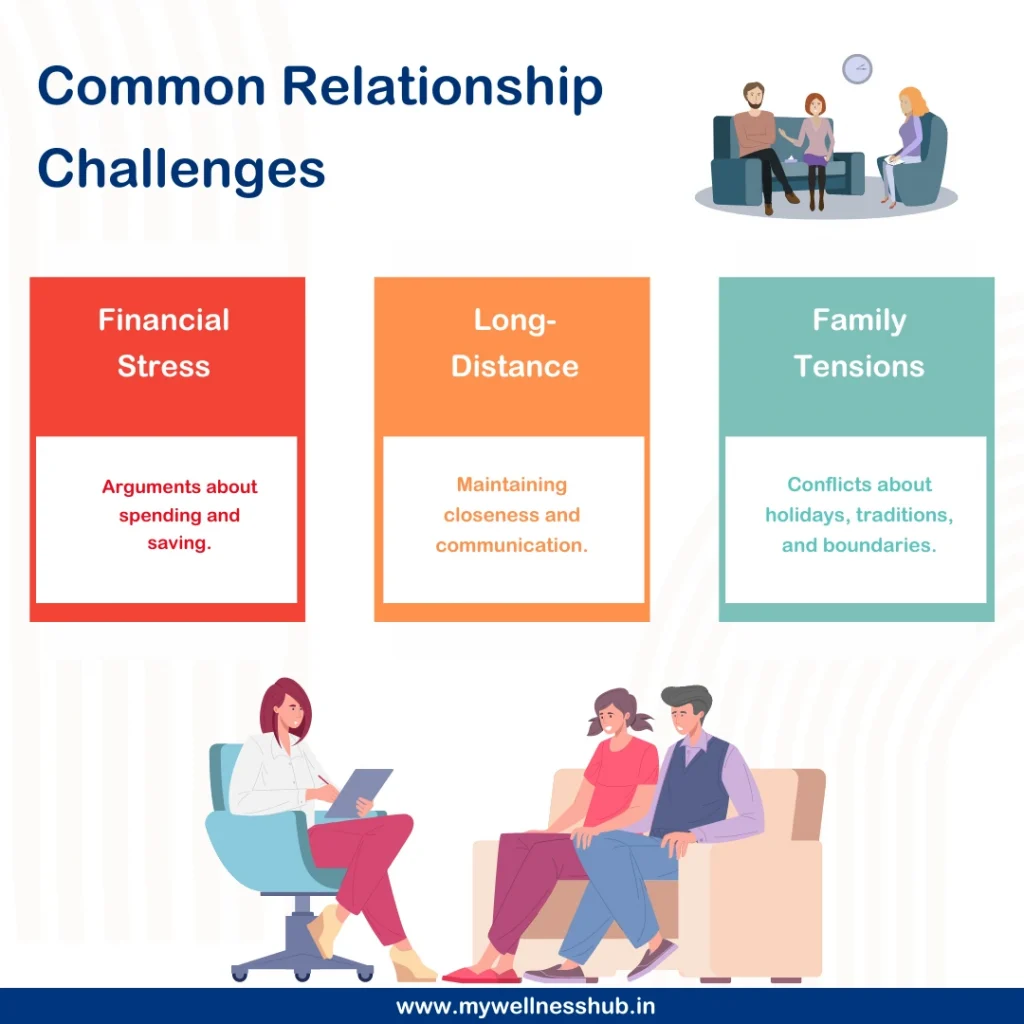
Every relationship faces its share of challenges. Whether it’s dealing with financial stress, navigating a long-distance relationship, or managing family tensions, these obstacles are common and can put a strain on even the strongest couples.
It’s essential to recognize that these challenges, while difficult, are a natural part of any relationship. Understanding them is the first step toward strengthening your bond as a couple. Financial stress, for example, can lead to arguments about spending and saving. Long-distance relationships often struggle with communication and maintaining closeness. Family tensions can create conflicts about holidays, traditions, and boundaries.
Practical Tips:
- Financial Stress:
- Create a budget together to manage your finances.
- Have open and honest conversations about money.
- Long-Distance Relationships:
- Set regular times for video calls.
- Plan visits and count down to seeing each other.
- Family Tensions:
- Establish clear boundaries with both families.
- Support each other when dealing with family conflicts.
The Role of Communication
Communication is the cornerstone of any healthy relationship. It plays a crucial role in strengthening relationships through challenges and is essential for building a stronger relationship.
Effective communication helps couples understand each other’s needs, resolve conflicts, and stay connected emotionally. When you and your partner can openly discuss your feelings, thoughts, and concerns, it becomes easier to navigate through tough times together.
Here are some tips for effective communication:
- Active Listening:
- Truly listen to what your partner is saying without interrupting.
- Show that you are engaged by nodding, maintaining eye contact, and providing verbal acknowledgments like “I understand” or “That makes sense.”
- Empathy:
- Try to understand your partner’s perspective and feelings.
- Respond with compassion and validate their emotions, even if you don’t completely agree.
- Honest Dialogue:
- Be open and honest about your own feelings and thoughts.
- Avoid hiding your true emotions or pretending everything is fine when it’s not.
Also read: Better ways to communicate in relationships
Emotional Accessibility and Safety
A key factor in strengthening your bond as a couple is emotional accessibility. This means being open and available to your partner emotionally, allowing them to feel safe and supported.
Emotional accessibility involves being there for each other, especially during tough times. It means answering the question, “Will you be there for me when I need you?” with a resounding “Yes.” This availability helps create a safe space where both partners can express their true feelings without fear of judgment or rejection.
Creating a safe emotional environment is crucial for couples facing challenges together. When both partners feel emotionally safe, they are more likely to open up about their fears, anxieties, and hopes. This openness fosters deeper understanding and trust, which are essential for navigating difficulties together.
Tips for Creating Emotional Safety:
- Consistent Support:
- Be consistently supportive of your partner’s emotions.
- Show empathy and understanding, even if you don’t fully agree with their feelings.
- Non-Judgmental Listening:
- Listen without judging or criticizing.
- Validate your partner’s feelings by acknowledging their perspective.
- Respect Boundaries:
- Respect each other’s emotional boundaries.
- Give space when needed, but also be available when support is required.
- Encourage Vulnerability:
- Encourage each other to be vulnerable and share deeper emotions.
- Respond with kindness and reassurance.
Self-Awareness and Managing Emotions
Understanding and managing your personal stress responses is crucial in strengthening your bond as a couple. Being aware of how you react to stress can help prevent conflicts from escalating and ensure that you support each other effectively.
Self-awareness involves recognizing your own emotional triggers and patterns. When you understand what causes you to feel stressed or upset, you can better communicate these feelings to your partner and work together to address them. This awareness is a vital part of enhancing your couple bond through adversity.
Ways to strengthen your relationship during tough times:
Here are some strategies for self-awareness and emotional regulation that can help you and your partner navigate tough times:
- Mindfulness Practices:
- Engage in mindfulness exercises such as meditation or deep breathing to stay present and calm.
- Mindfulness helps you become more aware of your emotions without reacting impulsively.
- Journaling:
- Write down your thoughts and feelings regularly.
- Journaling can help you identify patterns in your emotional responses and gain insight into your stress triggers.
- Reflective Conversations:
- Have regular check-ins with your partner where you both share your feelings and reflections.
- This practice encourages open communication and mutual understanding.
- Emotional Regulation Techniques:
- Learn and practice techniques like progressive muscle relaxation or visualization to manage stress.
- These methods can help you stay calm and composed during challenging situations.
- Seek Professional Help:
- Consider seeking support from a therapist to develop better self-awareness and emotional regulation skills.
- Professional guidance can provide personalized strategies tailored to your needs.
Comparison of Stress Responses and Solutions
| Stress Response | Description | Solution |
|---|---|---|
| Avoidance | Partner withdraws and avoids discussing issues, leading to unresolved conflicts and emotional distance. | Encourage Open Communication: Create a safe space for dialogue. Gently prompt discussions about feelings and concerns without pressuring. Use “I” statements to express your thoughts and invite your partner to share theirs. |
| Aggression | Partner reacts with anger, which can escalate conflicts and create a hostile environment. | Practice Mindfulness Techniques: Teach and practice techniques like deep breathing, meditation, and time-outs. Encourage taking a pause to calm down before discussing issues. |
| Anxiety | Partner feels overwhelmed and anxious, which can cause excessive worry and affect daily functioning. | Offer Support and Reassurance: Provide emotional support and understanding. Use comforting words and actions. Help your partner identify anxiety triggers and develop coping strategies together. |
| Silence | Partner becomes silent and unresponsive, making it difficult to resolve issues and connect emotionally. | Use Active Listening Techniques: Show that you are listening by nodding, making eye contact, and repeating back what your partner says. Ask open-ended questions to encourage them to share more. |
Appreciation and Affection
Appreciation and affection play crucial roles in maintaining a strong bond, especially during challenging times. Showing genuine appreciation and affection can significantly improve your relationship bond.
When times are tough, it’s easy to focus on the negative and forget the positive aspects of your relationship. However, it’s during these times that showing appreciation becomes even more important. Acknowledging and valuing each other’s efforts can make a big difference in how connected you feel.
The Role of Appreciation and Affection
Appreciation involves recognizing and expressing gratitude for your partner’s actions and qualities. Affection is about showing love and care through physical touch, kind words, and thoughtful gestures. Both appreciation and affection help reinforce the emotional connection between partners, making it easier to navigate through tough times together.
Practical Ways to Show Appreciation During Tough Times
Verbal Acknowledgment:
- Say “thank you” for the small things, like making dinner or doing the laundry.
- Express appreciation for your partner’s support and understanding during stressful moments.
Small Acts of Kindness:
- Do something thoughtful for your partner, like preparing their favorite meal or leaving a loving note.
- These small acts can show that you care and appreciate them.
Physical Affection:
- Hold hands, hug, or cuddle to maintain physical closeness.
- Physical touch can be incredibly comforting and reaffirming.
Quality Time:
- Spend quality time together, even if it’s just a few minutes each day.
- Engage in activities that you both enjoy to strengthen your bond.
Celebrate Small Wins:
- Acknowledge and celebrate even the smallest victories or positive moments.
- This helps shift the focus from stress to the positive aspects of your relationship.
Active Listening:
- Show appreciation by truly listening to your partner without interrupting.
- Validate their feelings and provide reassurance.
Collaborative Problem-Solving
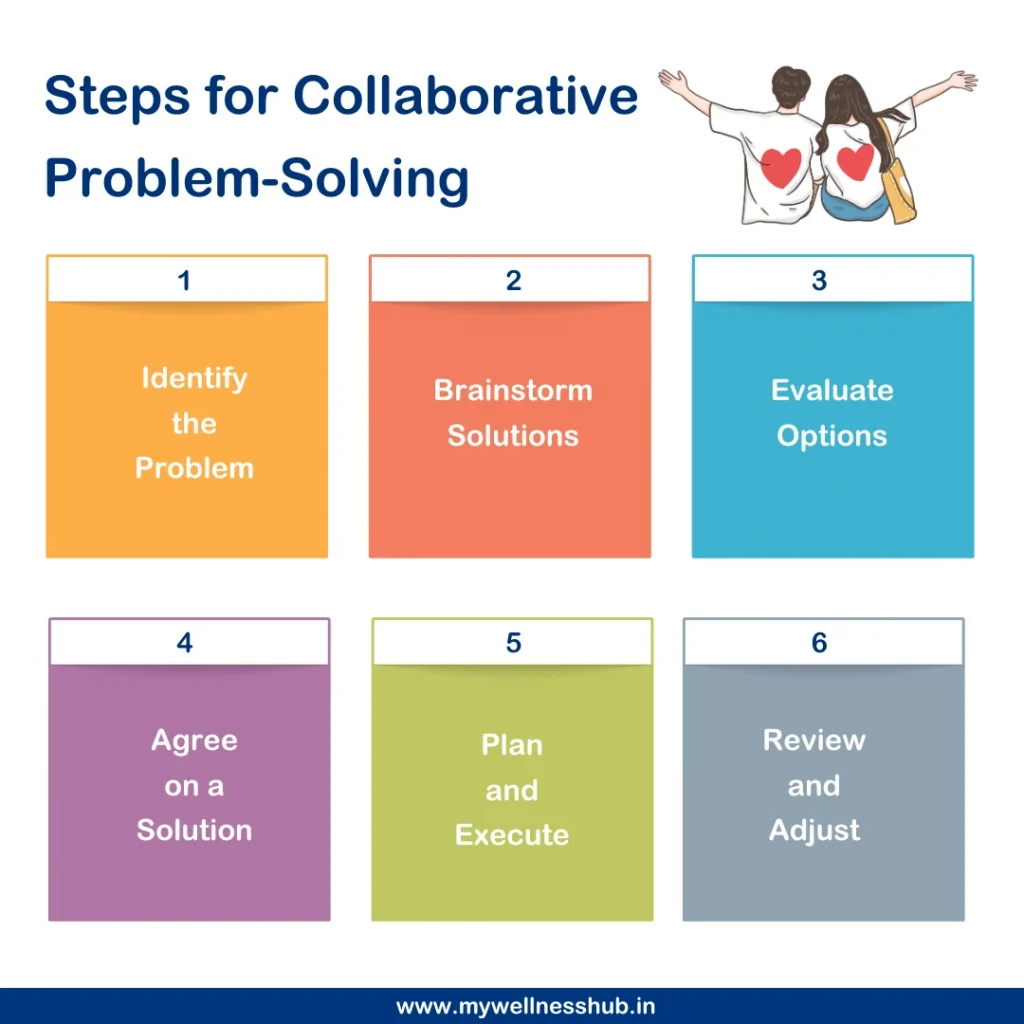
Collaborative problem-solving is essential for couple resilience, especially during tough times. Working together to find solutions not only addresses the issues at hand but also strengthens your bond as a couple.
When you face challenges, it’s easy to feel overwhelmed and isolated. However, approaching problems as a team can transform these difficulties into opportunities for growth. Collaborative problem-solving involves both partners actively participating in the process, ensuring that both perspectives are considered and valued.
Importance of Working Together to Solve Problems
Working together to solve problems fosters a sense of unity and partnership. It helps build trust and mutual respect, as both partners feel heard and supported. Collaborative problem-solving can prevent resentment and misunderstandings, paving the way for a stronger, more resilient relationship.
Steps for Effective Collaborative Problem-Solving
Identify the Problem Clearly:
- Begin by clearly defining the problem without blaming each other.
- Use “we” statements to emphasize teamwork (e.g., “We are facing a financial challenge”).
Brainstorm Solutions Together:
- Encourage open and honest communication to brainstorm possible solutions.
- Allow each partner to suggest ideas without judgment or criticism.
Evaluate Options Fairly:
- Discuss the pros and cons of each potential solution together.
- Consider the impact on both partners and the relationship as a whole.
Agree on a Solution:
- Choose a solution that both partners are comfortable with.
- Ensure that the decision is mutual and agreed upon by both parties.
Plan and Execute:
- Create a step-by-step plan to implement the chosen solution.
- Assign responsibilities and support each other in carrying out the plan.
Review and Adjust:
- Regularly review the progress of the implemented solution.
- Be open to making adjustments if needed, based on how things are going.
Commitment and Core Values
Commitment and shared core values play a crucial role in helping couples endure tough times. When partners are deeply committed to each other and share common values, they are better equipped to face adversities together.
Adversity can indeed strengthen a relationship if both partners are committed to working through challenges together. This commitment acts as a foundation, providing stability and reassurance even during the most difficult periods. Shared core values further enhance this bond by aligning both partners beliefs and goals, creating a united front against any obstacles.
The Role of Commitment and Shared Core Values
Commitment:
Commitment is about more than just staying together; it involves a genuine dedication to nurturing the relationship. It means choosing to support each other, even when times are tough. A strong commitment helps couples stay focused on their long-term goals and reminds them of the love and respect they have for each other.
Shared Core Values:
Core values are the fundamental beliefs that guide your actions and decisions. When couples share similar values, such as honesty, loyalty, and respect, they have a common ground that strengthens their bond. These values serve as a compass, guiding couples through challenges and ensuring they make decisions that are beneficial for both partners and the relationship as a whole.
How to Align and Strengthen Core Values as a Couple
- Open Communication:
- Discuss your core values with each other openly and honestly.
- Understand what is most important to each of you and why.
- Set Shared Goals:
- Identify common goals that reflect your shared values.
- Work together to achieve these goals, reinforcing your commitment to each other.
- Regular Check-Ins:
- Have regular discussions about your values and goals.
- Ensure that you both are still aligned and make adjustments if needed.
- Support Each Other’s Growth:
- Encourage each other to grow and evolve in ways that align with your core values.
- Celebrate each other’s achievements and support each other through challenges.
- Stay True to Your Values:
- Make decisions based on your shared values, even when it’s difficult.
- Staying true to your values strengthens your bond and builds trust.
Seeking Professional Help
Seeking professional help can be a powerful tool for couples looking to strengthen their bond, especially during tough times. Couples counseling provides a safe space to address issues and develop effective strategies for overcoming challenges together.
Benefits of Couples Counseling
- Improved Communication:
- Counselors can teach you how to communicate more effectively, ensuring that both partners feel heard and understood.
- Learning to express your feelings and needs clearly can prevent misunderstandings and reduce conflicts.
- Conflict Resolution:
- Professional counseling provides strategies for resolving disputes in a healthy and constructive manner.
- You can learn to approach conflicts as a team, finding solutions that work for both partners.
- Emotional Support:
- A counselor offers a supportive environment where you can discuss your emotions and concerns openly.
- This support can help you feel less isolated and more connected to your partner.
- Strengthening Commitment:
- Counseling reinforces your commitment to each other by addressing underlying issues and strengthening your emotional bond.
- It helps you reaffirm your dedication to the relationship, even during tough times.
Wellness Hub’s Resources for Professional Support
At Wellness Hub, we understand the importance of professional support in strengthening couples’ bonds. We offer a range of counseling services designed to help you and your partner navigate through adversity and emerge stronger together. Our experienced counselors use evidence-based techniques to enhance your relationship, ensuring that you have the tools you need to face any challenge.
Explore our couples counseling services and take the first step towards a healthier, more resilient relationship. Our resources are tailored to meet your unique needs, providing the support and guidance necessary for a thriving partnership.
Conclusion:
Every relationship has its share of challenges, but these moments can pave the way for growth and deeper connection. The key lies in addressing these hurdles together using proven strategies like open communication, emotional vulnerability, self-awareness, appreciation, problem-solving, and a shared commitment to improvement. Remember, seeking professional guidance is a sign of strength, not weakness. Trust the process, have faith in your partnership, and view tough times as opportunities to fortify your bond. With patience, empathy, and teamwork, you can transform temporary struggles into lasting resilience, making your relationship stronger than ever before.
Frequently Asked Questions:
1. How do challenges affect relationships?
Challenges can test a relationship, but they also offer opportunities for growth and deeper connection. Couples who face challenges together often develop stronger communication skills, greater empathy, and a deeper emotional bond.
2. Can adversity really strengthen a relationship?
Yes, adversity can strengthen a relationship. When couples navigate tough times with patience and mutual support, they often emerge with a stronger bond and a greater appreciation for each other.
3. What are some effective communication strategies for couples?
Effective communication strategies include active listening, showing empathy, and maintaining honest dialogue. It’s important to listen without interrupting, validate each other’s feelings, and express your own thoughts clearly.
4. How can couples create a safe emotional environment?
Creating a safe emotional environment involves being emotionally accessible, showing consistent support, listening without judgment, and respecting each other’s boundaries. This helps both partners feel valued and secure.
5. Why is self-awareness important in a relationship?
Self-awareness helps individuals understand their own emotional triggers and stress responses. This understanding allows them to communicate their needs better and support their partner more effectively, leading to a healthier relationship.
6. What are some practical ways to show appreciation in a relationship?
Practical ways to show appreciation include verbal acknowledgment, small acts of kindness, physical affection, spending quality time together, and celebrating small wins. These gestures help reinforce the emotional connection between partners.
7. How can couples solve problems together effectively?
Effective problem-solving involves identifying the problem clearly, brainstorming solutions together, evaluating options fairly, agreeing on a solution, planning and executing it, and regularly reviewing progress. This collaborative approach strengthens the relationship.
8. What role do commitment and shared core values play in a relationship?
Commitment and shared core values provide a stable foundation for a relationship. They guide couples through tough times, ensuring that both partners are aligned in their beliefs and goals, which strengthens their bond.
9. When should couples seek professional help?
Couples should seek professional help when they face persistent issues that they can’t resolve on their own. Counseling can provide valuable tools and insights to help couples navigate challenges and strengthen their relationship.
10. How can I find more resources to strengthen my relationship?
You can find more resources to strengthen your relationship by visiting our relationship advice section at Wellness Hub. We offer practical tips and professional support to help you and your partner grow closer through every challenge.
About the Author:
Prapoorna Mangalampalli
M.Sc., M.A., (Dual Masters in Psychology & English) – Counselor (6+ years of experience)
Prapoorna armed with a passionate dedication fueled by dual Master’s degrees in Psychology and English, Prapoorna sheds light on and elevates human experiences. Over 6+ years of experience fuel her insightful approach to counseling, offering profound empathy and guidance across diverse areas like online, marital, relationship, child, family, and career counseling.
At Wellness Hub, she thrives in a team environment that values innovation, compassion, and achieving results for their clients.
Connect with Prapoorna to learn how she can help you or your loved one find their voice and build a brighter future.
Book your Free Consultation Today
Parent/Caregiver Info:
Client’s Details:
* Error Message

